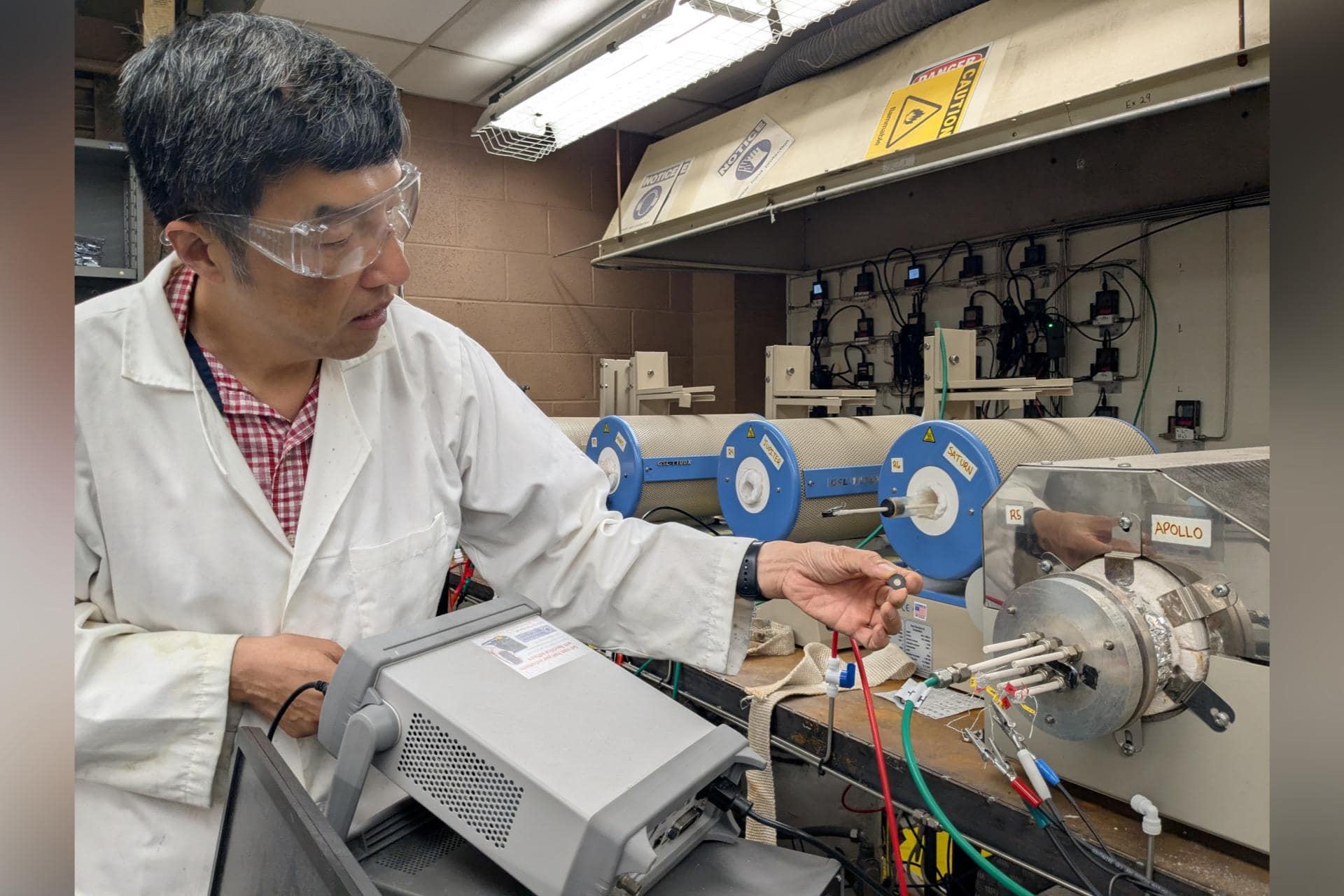Innovative Fuel Cell Breakthrough for Power Grid Stability
Key Ideas
- West Virginia University engineers have developed a durable fuel cell that can efficiently store and generate electricity or hydrogen, offering a solution for the fluctuating power grid.
- The fuel cell can withstand high temperatures and steam generated during long periods of operation, addressing key issues faced by existing designs for protonic ceramic electrochemical cells.
- The prototype fuel cell successfully operated for over 5,000 hours at extreme conditions, breaking apart molecules to produce electricity and hydrogen through electrolysis.
- The research, supported by the U.S. Department of Energy, aims to commercialize the design for industrial-scale applications, potentially revolutionizing energy storage and production in the future.
West Virginia University engineers have developed a groundbreaking fuel cell that can efficiently store and generate electricity or hydrogen, providing a potential solution to stabilize the power grid amidst the variability of renewable energy sources like solar and wind power. This innovative fuel cell, known as a protonic ceramic electrochemical cell (PCEC), is designed to switch between energy storage and power production, offering flexibility for the evolving U.S. electrical grid. The team, led by researcher Xingbo Liu, overcame the challenges faced by current PCEC designs by developing a conformally coated scaffold structure that remains stable in high heat and steam environments, ensuring efficient proton conduction and performance. Their prototype demonstrated exceptional durability, operating for over 5,000 hours at 600 degrees Celsius and 40% humidity, surpassing previous performance records. The study, published in Nature Energy, highlights the successful outcomes led by doctoral student Hanchen Tian and research assistant professor Wei Li, with support from other WVU contributors. The team's advancements in incorporating barium and nickel ions into the design show promise for industrial scalability and stability under extreme conditions. With funding from the U.S. Department of Energy and recognition through the DOE Hydrogen Production Technology Award, the researchers aim to commercialize the fuel cell design with the potential to revolutionize energy storage and production systems.
